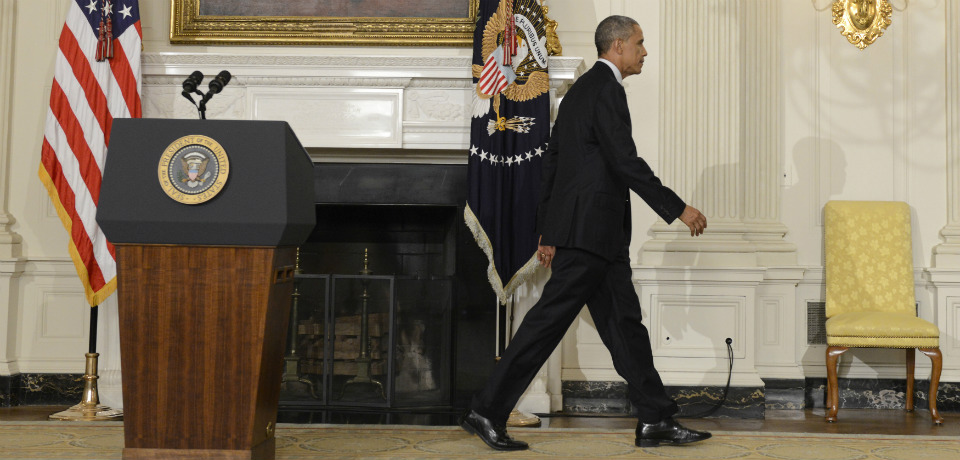Six years into his presidency, Barack Obama’s foreign policy has gone by many names. He’s talked of hitting “singles and doubles,” an aide said he believed in “leading from behind,” and he’s been accused of boiling down his overarching goal to resisting that which smells bad, according to the Foreign Policy.
Obama’s critics see a president adrift, lacking firm convictions or a strategy for dealing with the world. In an interview published Monday with the news site Vox, Obama offered what is perhaps his most succinct articulation yet of his foreign policy.
“You take the victories where you can. You make things a little bit better rather than a little bit worse,” Obama told Vox executive editor Matt Yglesias. “And that’s in no way a concession to this idea that America is withdrawing or there’s not much we can do. It’s just a realistic assessment of how the world works.”
This perspective, of course, is what drives Obama’s foreign policy critics — on both the right and the left — batty. For the neoconservative right, this sentiment drives their argument that Obama has shown a lack of “leadership” on the international stage, even if that argument often fails to explain how Obama should have been leading. For human rights activists on the left, Obama’s willingness to secure victories wherever he may has led to what they see as premature concessions on human rights with governments such as those in Egypt and Myanmar.
As Obama appears to see it, this debate breaks down in large part over the extent of America’s actual ability to influence world events. (Therein lies the politically unpalatable part — acknowledging that American power has limits doesn’t make for great politics.) His critics see a world in flames, a president acting cautiously, and conclude that all impetus to action has been lost — and, perhaps, that some notion of American “greatness” has also fallen by the wayside. On the heels of a failed war in Iraq that was envisioned to remake the Middle East in America’s democratic image, Obama is preaching a philosophy of modest improvements, not revolution.
“I think, the goal of any good foreign policy is having a vision and aspirations and ideals, but also recognizing the world as it is, where it is, and figuring out how do you tack to the point where things are better than they were before,” Obama told Vox. “That doesn’t mean perfect. It just means it’s better.”
Still, with 200,000 dead in Syria’s civil war, eastern Ukraine engulfed in a Russian-backed insurgency, and the Islamic State governing large parts of Syria and Iraq, it can be hard to see what’s “better” about this world. (Obama did, however, correctly note that “the trajectory of this planet overall is one toward less violence, more tolerance, less strife, less poverty.”) On each of these crises, one can criticize Obama for how badly they have turned out, but that assumes that the United States had the ability to influence these crises for the better before they spiraled out of control.
And that’s an extremely difficult question to answer, one Obama claims he grapples with every day. “I get a thick book full of death, destruction, strife, and chaos,” he remarked to Yglesias. “That’s what I take with my morning tea.”
M. Wassouf

